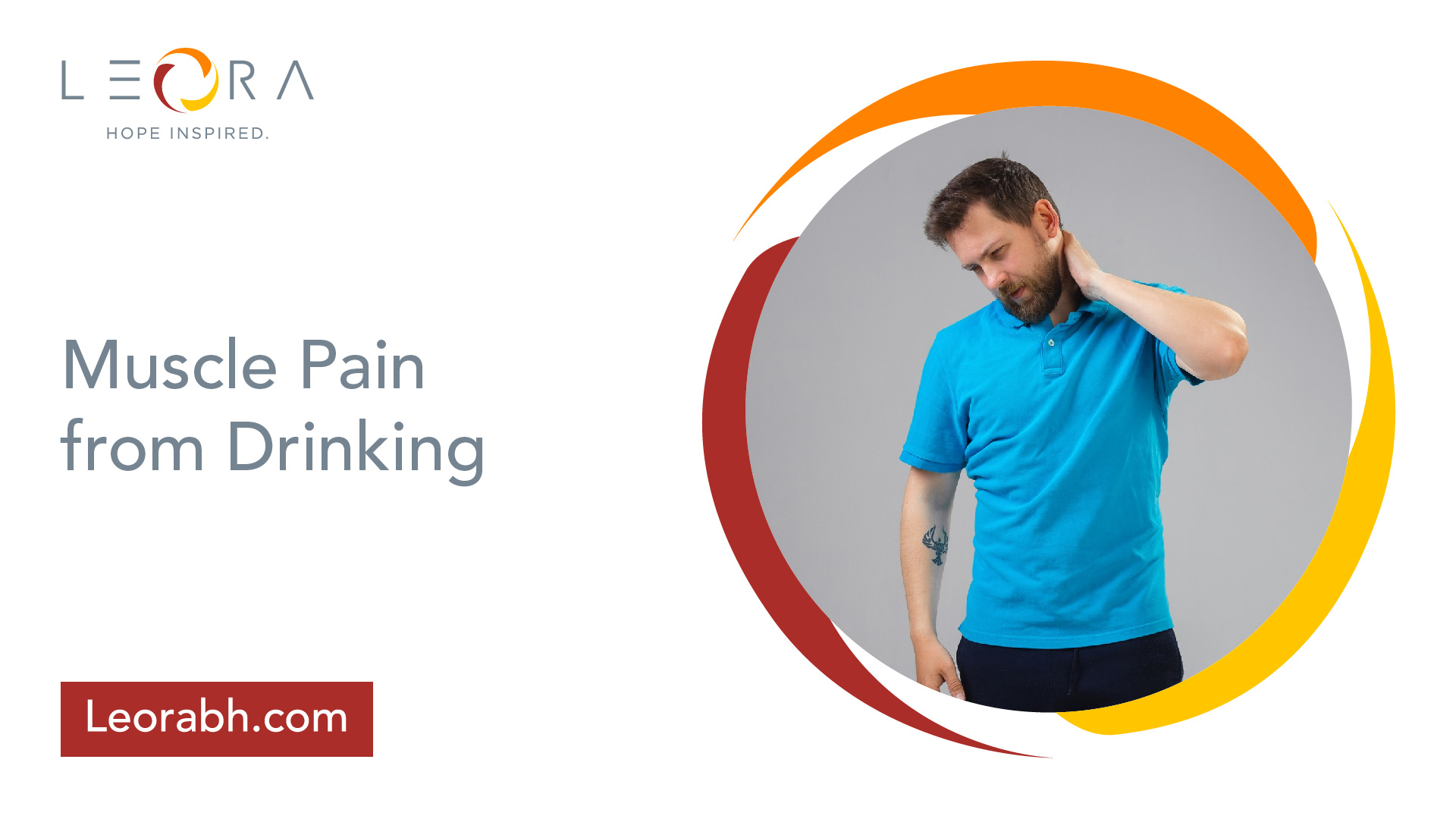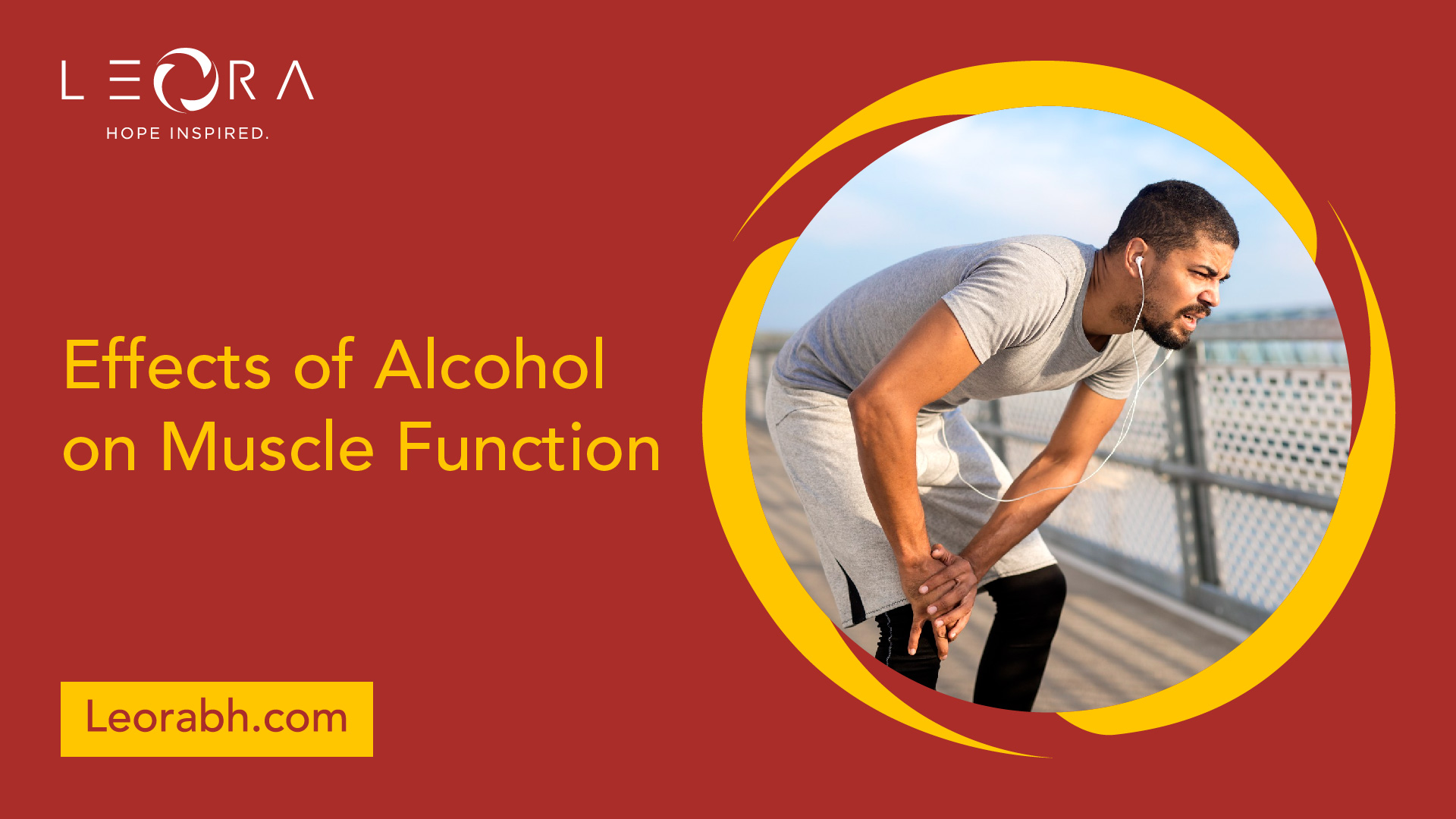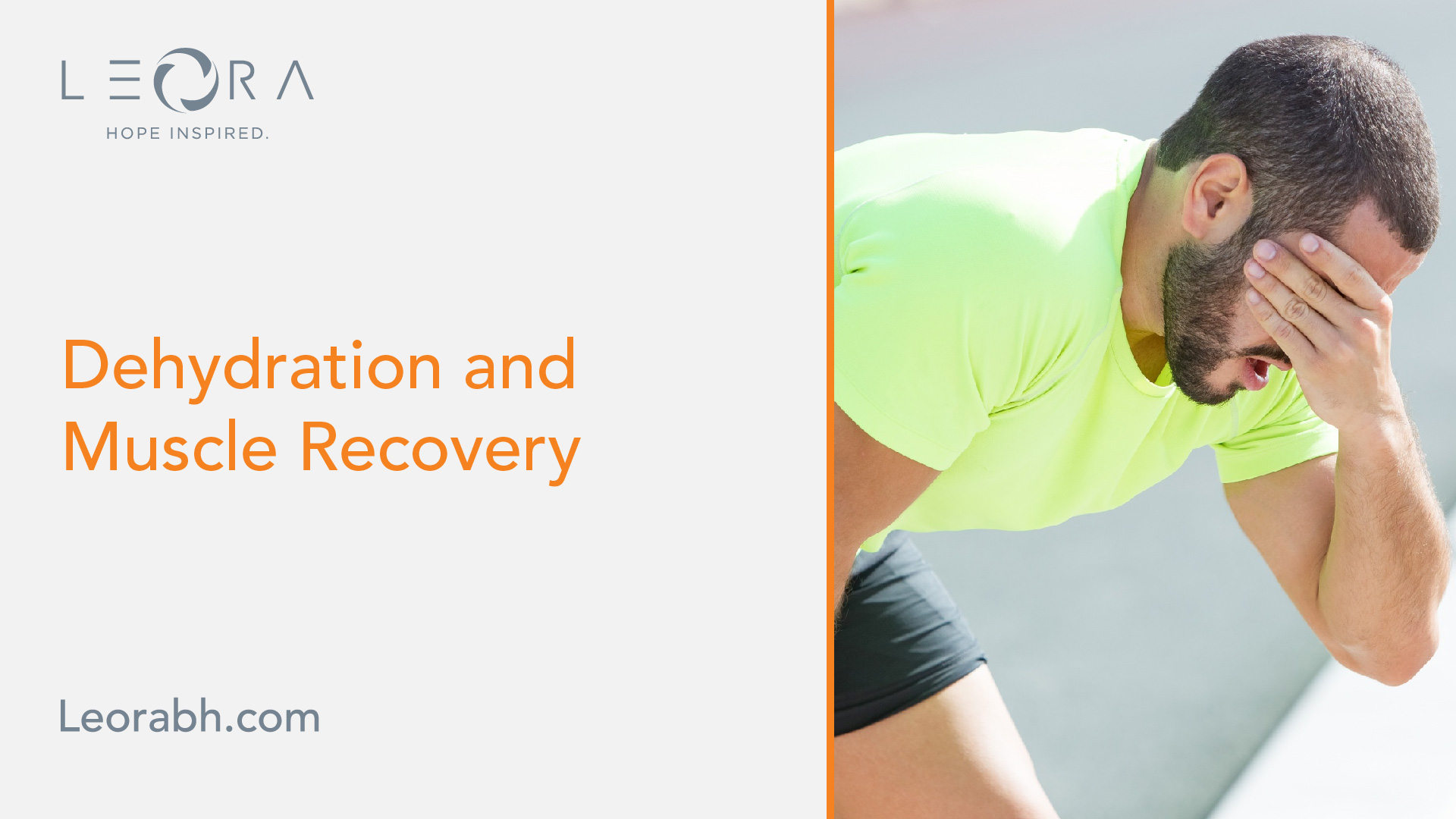Muscle Pain from Drinking
Discover the impact of alcohol on muscle soreness. Unravel the connection between alcohol and muscle recovery for optimal fitness results.
Alcohol and Muscle Soreness: Exploring the Connection
To understand the relationship between alcohol consumption and muscle soreness, it's important to delve into the effects of alcohol on muscle recovery. Let's explore the concept of muscle soreness and how alcohol can impact the recovery process.

Understanding Muscle Soreness
Muscle soreness, also known as delayed onset muscle soreness (DOMS), is the discomfort or pain experienced in muscles after engaging in strenuous exercise or physical activity. It typically occurs within 24 to 48 hours after exercise and is characterized by muscle tenderness, stiffness, and reduced range of motion.
DOMS is believed to be caused by microscopic damage to muscle fibers during intense or unfamiliar physical activities. This damage triggers an inflammatory response as the body repairs and rebuilds the muscle tissue, leading to the sensation of soreness.
The Impact of Alcohol on Muscle Recovery
Alcohol consumption can have a negative impact on muscle recovery, potentially exacerbating muscle soreness and delaying the healing process. Several factors contribute to this relationship.
Alcohol's Impact on Protein Synthesis
Protein synthesis is a vital process for muscle repair and growth. However, consuming alcohol can interfere with this process. Alcohol consumption inhibits protein synthesis, reducing the body's ability to rebuild and repair damaged muscle fibers effectively. This can prolong the recovery period and contribute to increased muscle soreness.
Alcohol's Effect on Muscle Damage and Repair
Alcohol can also impair muscle damage and repair mechanisms. Studies have shown that alcohol consumption can increase markers of muscle damage, leading to more severe muscle soreness. Additionally, alcohol interferes with the release of growth hormones, such as testosterone, which play a crucial role in muscle repair and recovery.

Effects of Alcohol on Muscle Function
Alcohol consumption can have various effects on muscle function, which can impact muscle soreness and recovery. Let's explore two key aspects: alcohol's impact on protein synthesis and its effect on muscle damage and repair.
Alcohol's Impact on Protein Synthesis
Protein synthesis is a crucial process that helps build and repair muscle tissues. However, alcohol consumption can interfere with this process. When alcohol is present in the body, it disrupts the signaling pathways responsible for protein synthesis, leading to a decrease in muscle protein synthesis rates. This can impair muscle growth and recovery.
Research suggests that alcohol inhibits the mTOR pathway, which plays a vital role in regulating protein synthesis. Additionally, alcohol can disrupt hormone production, such as testosterone and growth hormone, which are essential for muscle development and repair.
Alcohol's Effect on Muscle Damage and Repair
Intense physical activity, such as exercise, can cause microscopic damage to muscle fibers. This damage is a normal part of the muscle repair process and contributes to muscle soreness. However, alcohol consumption can interfere with this repair process.
Studies have shown that alcohol consumption can lead to increased muscle damage and delayed muscle repair. Alcohol's toxic byproducts can induce oxidative stress and inflammation, which can further exacerbate the damage to muscle fibers. This prolonged muscle damage can result in prolonged muscle soreness and slower recovery.
It's important to note that the effects of alcohol on muscle function can vary depending on factors such as the amount of alcohol consumed, frequency of consumption, and individual differences. However, moderate to heavy alcohol consumption has been consistently associated with negative impacts on muscle function and recovery.
Understanding the effects of alcohol on muscle function is crucial for those who are actively engaged in physical activities and seeking optimal muscle recovery. To minimize the impact of alcohol on muscle soreness and recovery, it's advisable to consume alcohol in moderation or consider alternatives. Additionally, ensuring proper hydration and nutrition can support muscle repair and mitigate the negative effects of alcohol.
Alcohol and Inflammation
When it comes to muscle soreness, inflammation plays a significant role. Inflammation is a natural response of the body to tissue damage or injury, and it is an essential part of the muscle repair process. However, alcohol consumption can have an impact on the body's inflammatory response, which can have implications for muscle soreness.
Alcohol's Influence on Inflammatory Response
Alcohol consumption has been shown to disrupt the body's normal inflammatory response. Research suggests that alcohol can increase the production of pro-inflammatory molecules, such as cytokines, while decreasing the production of anti-inflammatory molecules. This imbalance in the inflammatory response can lead to prolonged inflammation and delayed healing.
Furthermore, alcohol can also interfere with the body's immune system, impairing its ability to combat inflammation and promote healing. This can further contribute to the persistence of inflammation, potentially exacerbating muscle soreness.
Implications for Muscle Soreness
The impact of alcohol on the body's inflammatory response can have direct implications for muscle soreness. Prolonged inflammation can prolong the recovery process, leading to increased muscle soreness and delayed relief.
Additionally, chronic inflammation resulting from excessive alcohol consumption may contribute to the development of conditions such as muscle inflammation, muscle fatigue, and muscle weakness. These conditions can further hinder muscle recovery and exacerbate soreness.
It's important to note that moderate alcohol consumption is less likely to have a significant impact on the body's inflammatory response compared to excessive or chronic alcohol intake. However, individuals who are already experiencing muscle soreness or are looking to optimize their muscle recovery process may benefit from minimizing or avoiding alcohol consumption.

Dehydration and Muscle Recovery
When it comes to muscle recovery, hydration plays a vital role. Unfortunately, alcohol's dehydrating effects can hinder the body's ability to properly recover from muscle soreness and damage. Let's explore how alcohol's dehydrating effects can impact muscle recovery and contribute to delayed healing.
Alcohol's Dehydrating Effects
Alcohol has diuretic properties, meaning it increases urine production and promotes fluid loss from the body. This leads to dehydration, as the body loses more fluid than it takes in. When dehydrated, the body struggles to maintain optimal fluid balance, which is crucial for proper muscle function and recovery.
To illustrate the dehydrating effects of alcohol, consider the following table:
Alcohol Amount ConsumedEquivalent Fluid Loss1 standard drink150 milliliters (5 ounces)3 standard drinks450 milliliters (15 ounces)5 standard drinks750 milliliters (25 ounces)
As seen in the table, consuming multiple alcoholic beverages can result in significant fluid loss, exacerbating dehydration. This dehydration can lead to muscle cramping, fatigue, and decreased muscle performance, making it more challenging for the body to recover from exercise-induced muscle soreness.
Dehydration and Delayed Muscle Recovery
Dehydration negatively impacts muscle recovery in several ways. Firstly, it reduces blood flow to the muscles, limiting the delivery of essential nutrients and oxygen necessary for muscle repair. Additionally, dehydration impairs the removal of metabolic waste products from the muscles, further hindering the recovery process.
Moreover, dehydration can compromise the body's ability to control inflammation, a natural response to muscle damage. Proper hydration is essential for maintaining a balanced inflammatory response, which is crucial for effective muscle repair. When dehydrated, the inflammatory response may become dysregulated, leading to prolonged inflammation and delayed recovery.
To support optimal muscle recovery, it's crucial to prioritize hydration and minimize alcohol consumption. By staying adequately hydrated, you can promote efficient nutrient delivery, waste removal, and inflammation control, ultimately aiding in the recovery process.
In conclusion, alcohol's dehydrating effects can impede muscle recovery by reducing blood flow, limiting nutrient delivery, impairing waste removal, and dysregulating the inflammatory response. To support proper muscle recovery and minimize muscle soreness, it's essential to maintain hydration by consuming adequate fluids and limiting alcohol intake.
Alcohol and Sleep Quality
When it comes to muscle repair and recovery, sleep plays a crucial role. However, alcohol consumption can have a significant impact on sleep quality, potentially affecting the body's ability to repair muscles effectively.
Alcohol's Impact on Sleep Patterns
While alcohol is commonly believed to aid in falling asleep faster, its impact on sleep quality is far from beneficial. Alcohol consumption can disrupt the natural sleep cycle, leading to fragmented and less restful sleep.
One of the ways alcohol affects sleep is by reducing the amount of time spent in rapid eye movement (REM) sleep, which is considered the most restorative stage of sleep. REM sleep is essential for muscle repair, as it is during this stage that the body repairs and rebuilds tissues, including muscles. By disrupting REM sleep, alcohol can interfere with the body's ability to properly repair muscles, potentially prolonging muscle soreness.
Another factor to consider is the impact of alcohol on sleep latency and maintenance. While alcohol may initially make you feel drowsy and help you fall asleep faster, it can also disrupt the natural sleep-wake cycle, leading to more awakenings throughout the night. These disruptions can further impair the body's ability to achieve deep, restorative sleep, hindering muscle recovery.
The Role of Restful Sleep in Muscle Repair
Restful sleep is essential for muscle repair and recovery. During sleep, the body releases growth hormone, which aids in tissue repair and muscle growth. Additionally, sleep allows for a reduction in cortisol levels, a stress hormone that can inhibit muscle repair.
To optimize muscle recovery, it's important to prioritize quality sleep. This includes maintaining a consistent sleep schedule, creating a conducive sleep environment, and adopting healthy sleep habits. Avoiding alcohol or minimizing its consumption can play a significant role in improving sleep quality and facilitating muscle repair.
By understanding the impact of alcohol on sleep patterns and the role of restful sleep in muscle repair, individuals can make informed choices regarding alcohol consumption and prioritize strategies that promote optimal muscle recovery.
Strategies for Minimizing the Impact
While it's advisable to limit alcohol consumption to minimize its impact on muscle soreness, there are a few strategies you can employ to mitigate the effects when you do choose to indulge. Moderation and hydration, as well as considering timing and alternatives, can make a difference in reducing the impact of alcohol on muscle recovery.
Moderation and Hydration
One of the key strategies for minimizing the impact of alcohol on muscle soreness is to consume alcohol in moderation. Excessive alcohol intake can lead to dehydration and hinder muscle recovery. It's important to be mindful of your alcohol consumption and pace yourself to avoid overindulgence.
In addition to moderation, staying properly hydrated is crucial. Alcohol is a diuretic, meaning it increases urine production and can contribute to dehydration. Dehydration can exacerbate muscle soreness and delay the recovery process. To counteract this, make sure to drink plenty of water before, during, and after consuming alcohol. This helps maintain hydration levels and aids in flushing out toxins from the body.
Timing and Alternatives
Timing your alcohol consumption can also play a role in minimizing its impact on muscle soreness. It's advisable to avoid consuming alcohol immediately after intense physical activity or a workout. This is because alcohol can interfere with the body's natural muscle repair and recovery processes. Instead, allow your body some time to recover and replenish nutrients before indulging in alcoholic beverages.
Another strategy is to consider alternatives to alcoholic beverages. If you're looking for a refreshing drink after a workout or physical activity, opt for non-alcoholic options such as infused water, herbal tea, or electrolyte-rich sports drinks. These alternatives can help replenish fluids and provide necessary nutrients without the potential negative effects that alcohol can have on muscle soreness.
By practicing moderation, staying hydrated, and being mindful of timing and alternatives, you can minimize the impact of alcohol on muscle soreness. Remember, it's essential to prioritize your muscle recovery and overall well-being when making choices about alcohol consumption.
Conclusion
Alcohol consumption can have a significant impact on muscle soreness and recovery. The dehydrating effects of alcohol, its influence on the body's inflammatory response, disruption of sleep patterns, interference with hormone production, and inhibition of the mTOR pathway are all factors that can contribute to prolonged muscle soreness and slower recovery.
While it may be challenging to completely avoid alcohol consumption, practicing moderation, staying hydrated, and considering alternatives can help minimize its negative impact. Additionally, ensuring proper nutrition and hydration can support muscle repair and mitigate the negative effects of alcohol.
By prioritizing muscle recovery and overall well-being, individuals can make informed choices about their alcohol consumption habits. Understanding the impact of alcohol on muscle function is crucial for those who are actively engaged in physical activities and seeking optimal muscle recovery. By taking steps to reduce the impact of alcohol on muscle soreness and recovery, individuals can achieve their fitness goals while maintaining a healthy lifestyle.
Sources
Importance of Hydration on Recovery
Find Your Inner Light
Related Articles
Contact Us
Leora Behavioral Health offers a comprehensive addiction treatment programs to help you get your life back on track.
Our trained professionals will work with you to develop a personalized treatment plan that meets your unique needs. If you or someone you know is struggling with addiction, reach out to Leora Behavioral Health today.


.svg)





.svg)
.svg)
.svg)
.svg)